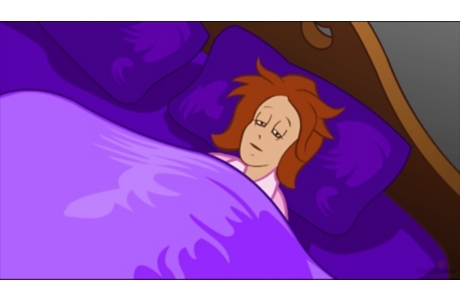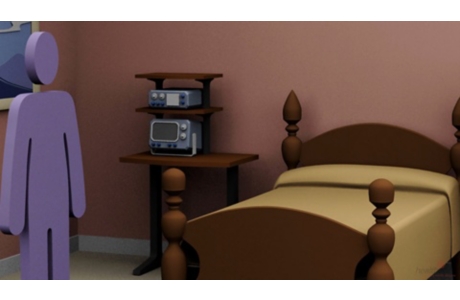Shift Work Sleep Disorder
Topic Overview
Is this topic for you?
This topic is for people who have trouble sleeping because they work a night shift or rotating shifts. If you have trouble sleeping because of other reasons, see the topic Insomnia.
What is shift work sleep disorder?
Shift work sleep disorder is trouble sleeping because you work nights or rotating shifts. You also may have this problem if you have trouble staying awake or alert when you are supposed to work your shift. You may not be able to sleep during the day, and you may not feel rested with the sleep you do get.
Shift work sleep disorder involves a problem with your body’s 24-hour internal clock, or circadian rhythm. Light and dark help your body know when to be active and when to rest. Light is a cue to be awake, while dark tells your body to sleep. When you work at night and sleep during the day, your body’s internal clock needs to reset to let you sleep during the day. Sometimes that’s hard to do.
This sleep disorder usually is a problem for people who work all night. But people who work an early morning shift—for example, starting at 4 a.m.—also may have sleep problems. Rotating shift work also can be hard. In these shifts, people work the day shift on some days and the night shift on others.
Getting enough good sleep is not a problem for everyone who works nights. Many people who work nights get plenty of restful sleep during the day. Some people are “night owls,” and they adjust well to working at night.
Many people have trouble sleeping once in a while, especially if they are getting used to a new work shift. But be sure to talk to your doctor if you have trouble sleeping or you have trouble staying alert when you are supposed to be awake. You could have a sleep problem. Or you may have another medical problem that causes insomnia.
How is shift work sleep disorder diagnosed?
Your doctor will use a sleep journal( What is a PDF document? ) and possibly sleep studies to see if you have sleep problems from shift work. He or she will ask questions about your work hours, when you sleep, how much you sleep, and how you feel when you wake up. Your doctor also will ask if you feel very tired or fall asleep while you’re at work.
With a sleep journal, you keep track of when you sleep, how much you sleep, and how you feel when you wake up. You write down this information for a week or two. Your doctor will look at it when you’re done.
There are several sleep studies you might have so your doctor can find out why you’re not sleeping well. These usually are done in a sleep lab.
If your doctor thinks that you have shift work sleep disorder, you might have a test called actigraphy. For this test, you wear a device on your wrist that looks like a watch. The device measures your movement during the day and at night. It helps your doctor learn when you are awake and when you are asleep.
How can shift work sleep disorder affect your health?
Shift work can increase stress, and that may make you more likely to get sick. Lack of sleep from shift work can increase the chance of car accidents and on-the-job accidents. It also can lead to trouble concentrating at work and poor job performance.
Experts also have found that shift workers have a higher chance of getting some health problems, such as colds and the flu, than people who work days.footnote 1
Experts don’t know exactly why this sleep disorder raises the risk of health problems. But they suspect that shift work may cause problems because, if you work at night, your body makes less melatonin than it needs. Melatonin is a hormone that helps control sleeping and waking cycles. It also plays a role in keeping you healthy by making your immune system strong and preventing the growth of tumors.
Light and dark affect how the body makes melatonin. Most melatonin is made at night. During the day, light tells your body to make less melatonin. If you work at night in artificial light, your body may be making less melatonin than it needs.
What can you do to sleep better when you work nights?
Sometimes sleep problems can be fixed only by switching to a regular work schedule—working in the day and sleeping at night.
But many people are able to work the night shift by making a few changes. You can help yourself get good sleep by keeping your sleeping environment dark and quiet and by taking good care of yourself overall. In some cases, short-term use of prescription medicine or over-the-counter supplements may help.
Control light, sound, and temperature
- Make sure that the room where you sleep is dark. Use blackout drapes or wear a sleep eye mask.
- Put a towel over bright digital devices, such as a clock.
- Wear dark wraparound glasses when you drive home in the daylight hours after working nights. This can counter some of the effect of light so your body will be more ready to sleep when you get home.
- Wear earplugs to block sounds.
- Use a “white noise” machine if there is distracting sound in the house or neighborhood that you can’t avoid.
- Keep the room at about 65°F (18°C). It’s hard to sleep in a room that is too hot or too cold.
Take care of yourself, and get support
- Eat a healthy diet. Some people who work night shifts gain weight because they eat high-calorie or high-fat meals.
- Don’t have alcohol or caffeine in the hours leading up to bedtime.
- Get plenty of exercise.
- Take a nap during a work break if you can.
- Ask family members not to wake you during your sleep time, except for an emergency.
Consider a supplement or medicine for short-term use
Ask your doctor if you should try a dietary supplement or medicine. Doctors usually advise people to use a supplement or medicine only for a short time.
- The dietary supplement melatonin may help improve your sleep. A man-made form of melatonin is available without a prescription. Your doctor can tell you how much to take and when to take it.
- Your doctor may prescribe sleeping pills for a limited time to help you fall asleep. These types of medicines include eszopiclone (Lunesta), ramelteon (Rozerem), zaleplon (Sonata), and zolpidem (Ambien or Ambien CR).
- A prescribed medicine like modafinil may help you stay more alert at work. It’s been shown to help people with shift work sleep problems stay awake when they work.
Your doctor also may have you try treatment with light (phototherapy) before a work shift to help you stay alert.
You may find that the caffeine in coffee or soda drinks helps you stay alert. But use caffeine only early in your shift, or it could keep you awake when you get home in the morning.
Current as of: May 28, 2019
Author: Healthwise Staff
Medical Review:Kathleen Romito, MD – Family Medicine & Mark A. Rasmus, MD – Pulmonology, Critical Care Medicine, Sleep Medicine
This information does not replace the advice of a doctor. Healthwise, Incorporated, disclaims any warranty or liability for your use of this information. Your use of this information means that you agree to the Terms of Use. Learn how we develop our content.




